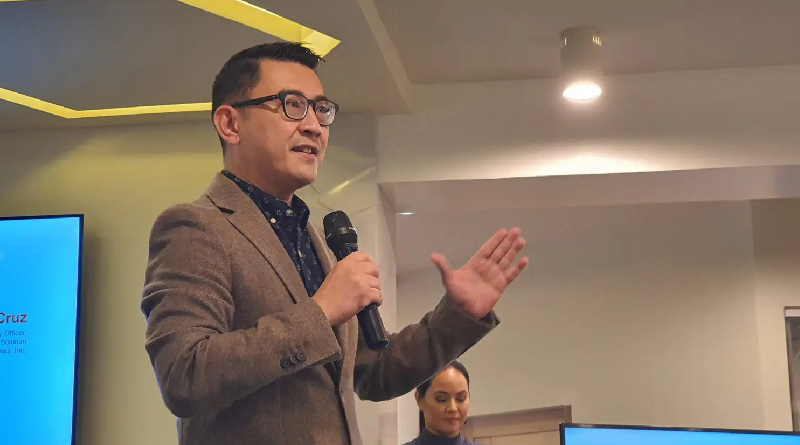Source: https://www.rappler.com/technology/features/how-startup-advanced-abilities-harnessing-ai-transform-healthcare-philippines/
Advanced Abilities is the first to bring an AI and cloud-powered X-ray platform in the Philippines that reduces turnaround time of patients getting results from 7 to 10 days to 1 day
MANILA, Philippines – In May 2022, Filipino startup Advanced Abilities officially launched its AI-enabled X-ray platform called Smartscan.
The technology is able to detect up to 25 chest pathologies in as fast as two minutes, tapping a database of about 6 million images. It is able to recognize possible cases of COVID-19, pneumonia, and lung cancer, among others, which could then be verified by a radiologist and physician. Traditionally, it would have taken a few days, at the least, to get results and a proper reading.
Like many other applications of AI, it helps speed things up.
While similar technologies have been deployed elsewhere in the globe, Advanced Abilities is the first to bring such a platform to the Philippines.
Christer Cruz, the company’s chief technology officer tells us their story.
The company’s venture into medical imaging arose from a health problem that’s always plagued the country: tuberculosis. An article on medical journal The Lancet said that according to a 2020 report from the World Health Organization, the Philippines was 4th globally in tuberculosis incidence. Figures from 2019 put the number of active cases in the country at 1 million, with about 70 dying each day from what is a “curable disease.”
Cruz said, “Our country as well as other emerging economies needed new ways to combat this epidemic.” In terms of technological solutions, the company saw the demand “was not being filled” and hence, they brought to the country what Cruz described as an “end-to-end platform, retrofitted to the Philippine setting, that optimizes the radiology workflow.”
For seven years, the company developed the platform, with the vision of equipping “healthcare caregivers the power of its AI.” In-house, they developed imaging-focused algorithmic tools, together with the help of radiologists as well, that can cover not just X-rays but also other imaging modalities such as CT scans and MRI.
It also makes use of deep learning algorithms that help improve the system as it gathers more interactions from doctors and ingest more data.
At the core of the platform is computer-aided detection (CAD). The system receives digital x-rays or digitized analog x-rays, and uses AI to analyze them for signs of tuberculosis.
“This technology helps to identify patients who are at risk of developing the disease, and it can also be used to track the progress of patients who are already infected,” Cruz explained.
“By using computer aided detection, health care workers can quickly and accurately identify cases of tuberculosis, which is essential for providing timely treatment. In addition, computer aided detection can also be used to monitor the spread of the disease, allowing health authorities to take action to prevent its spread,” he added.
From recognizing patterns of tuberculosis, the platform was then trained to detect other diseases as well.
Computer-aided detection, however, is just one part of the equation. The company’s product hopes to digitally connect the whole “radiology ecosystem” from the patient to the radiologist or other medical specialists.
Cruz clarified that they are not reinventing the wheel, but in a way, making it turn faster. “[We are] not changing how imaging is done but accelerating it by using AI/technology,” said Cruz, with their platform effectively reducing the turnaround time of patients getting results from seven to 10 days to one day.
“Our aspiration is to save time, give caregivers additional reach in treating more individuals in need of care, and give prompt results,” he added.
We often hear about “digital transformation” among enterprises. This is one example happening in the healthcare industry.
Radiologists have long made use of what is called “picture archiving and communication systems” (PACS) to store and transmit medical images such as X-rays. Advanced Abilities’ Smartscan is an example of an advanced cloud PACS platform, which makes use of artificial intelligence and cloud-powered services, promising productivity gains.
Cruz explained: “It connects various stakeholders in the radiology ecosystem by a click of a button, and improves communication between them thus resulting into reduced reporting turnaround time of radiology report. Using the power of the cloud, the platform enables the imaging centers and hospitals to efficiently manage the pool of resources where the experts can review the scans from anywhere at any time.” In the simplest of terms, it’s a Google Drive-like cloud ecosystem built for radiologists.
While it is the first in the Philippines, similar systems have been adopted by other companies in more than 300 hospitals and imaging centers in India, and is in the process of being adopted by Singapore public health hospitals, said Cruz.
Currently, Advanced Abilities’ Smartscan is available via its healthcare provider partner Maxicare and its clinics, but Cruz said the company is also working with LGUs to bring it to public hospitals. In the past, they have done health missions with the USAID to use the technology in various localities in the country.
How unique is the product? According to Cruz, there are several startups globally that are developing or exploring CAD for medical screening and imaging but only about nine have made a commercially-ready product including Advanced Abilities.
“The challenge of deploying AI in healthcare is certainly different from other applications. There are many factors to consider, including the sensitivity of patient data, the need for accurate predictions, and the potential impact on patient care. The stakes are high, but so is the potential reward. With careful planning and execution, AI can help healthcare organizations improve patient outcomes and reduce costs,” said Cruz.
“While we are an IT company – we are far more obsessed with the impact of technology on society and organizations. For this, we seek ways to use technology responsibly to generate tangible impact to our country. This is our mission.”
